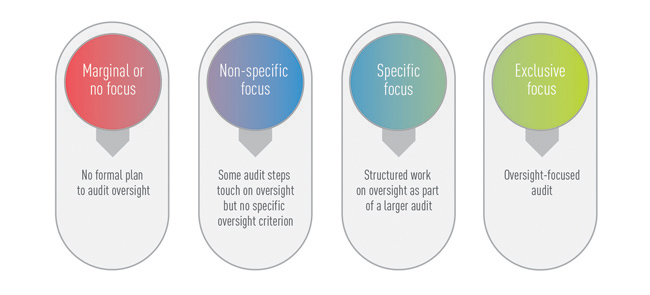OpenAI Facing FTC Investigation: Concerns And Potential Outcomes

Table of Contents
The Federal Trade Commission is a U.S. government agency responsible for protecting consumers and promoting competition. Its purview includes investigating unfair business practices and ensuring companies comply with consumer protection laws. This article will delve into the specific concerns that prompted the FTC investigation into OpenAI and explore the potential ramifications of this high-profile case.
Concerns Regarding OpenAI's Data Practices
The FTC investigation into OpenAI centers heavily on concerns regarding its data practices. These concerns encompass data collection methods, algorithmic bias, and potential security vulnerabilities.
Data Collection and Use
OpenAI's AI models, like GPT-3 and DALL-E 2, require massive datasets for training. The methods used to collect and utilize this data raise significant questions about compliance with consumer privacy regulations.
- Lack of Transparency: Concerns exist regarding the lack of transparency in OpenAI's data collection processes. Users are often unclear about what data is being collected, how it's being used, and for how long it's retained.
- Consent Issues: Questions arise about whether informed consent is obtained from individuals whose data is used to train OpenAI's models. The implicit consent implied by using the services might not meet the stringent standards of various data protection laws.
- Potential Misuse of Data for Discriminatory Purposes: The risk of unintentionally incorporating biased data into AI models is a major concern. This can lead to discriminatory outcomes, perpetuating existing societal biases. This is particularly important given the broad range of applications for AI models. Regulations like GDPR in Europe and CCPA in California aim to address such issues, requiring transparency and accountability in data handling practices. OpenAI's adherence (or lack thereof) to these regulations is under scrutiny.
Algorithmic Bias and Fairness
Another significant area of concern relates to algorithmic bias embedded within OpenAI's models. These biases can manifest in various ways, leading to unfair or discriminatory outcomes.
- Examples of Bias: Studies have shown that AI models, including some developed by OpenAI, can exhibit biases related to gender, race, and other protected characteristics. For example, a language model might generate stereotypical responses when prompted with certain demographic information.
- Implications for Demographics: The impact of biased AI can disproportionately affect marginalized communities, exacerbating existing inequalities. This raises ethical concerns about fairness and equitable access to technology.
- Mitigation Efforts: OpenAI has made some efforts to address bias, but the effectiveness of these measures is a subject of ongoing debate. The FTC investigation will likely scrutinize the extent and efficacy of these efforts.
Security Vulnerabilities
The vast amounts of data handled by OpenAI and the complexity of its AI models present significant security risks.
- Potential Vulnerabilities: Data breaches, unauthorized access, and model manipulation are all potential security vulnerabilities. A breach could expose sensitive personal information or enable malicious actors to misuse the AI models.
- Impact on Consumers and Businesses: The consequences of a security breach could be severe, impacting both individual consumers and businesses that rely on OpenAI's technology. Loss of trust and financial damage are potential outcomes.
- Security Measures: The adequacy of OpenAI's security measures is another point of investigation. The FTC will likely assess whether OpenAI has implemented sufficient safeguards to protect user data and prevent malicious activities.
Potential Outcomes of the FTC Investigation
The FTC investigation into OpenAI could have several significant outcomes, ranging from financial penalties to regulatory changes that will impact the entire AI industry.
Fines and Penalties
Depending on the severity of the findings, OpenAI could face substantial fines and penalties.
- Financial Repercussions: The potential financial penalties could range from relatively small fines to significant sums, depending on the nature and extent of any violations found.
- Comparison to Similar Cases: The FTC’s actions will likely be compared to previous cases against other tech giants who have faced penalties for data privacy violations. The precedents set in those cases could inform the potential penalties for OpenAI.
Regulatory Changes and Compliance Requirements
The investigation could trigger significant regulatory changes and stricter compliance requirements for AI companies.
- Potential Changes: The FTC might impose new regulations regarding data handling, algorithmic transparency, and bias mitigation. This could include more stringent requirements for data security, user consent, and algorithmic auditing.
- Implications for the Broader AI Industry: The outcome of the OpenAI investigation will set a precedent for other AI companies, shaping industry practices and regulatory expectations going forward. It will influence the regulatory landscape for AI development and deployment globally.
Reputational Damage and Consumer Trust
The investigation's negative publicity could severely damage OpenAI's reputation and erode consumer trust in its technology.
- Impact on User Base and Partnerships: Negative publicity could lead to a decline in OpenAI's user base and difficulties securing new business partnerships.
- Long-Term Consequences: The long-term consequences for OpenAI's brand image could be significant, impacting its ability to attract investors and maintain its position in the competitive AI landscape.
OpenAI Facing FTC Investigation: Key Takeaways and Next Steps
The FTC investigation into OpenAI underscores the critical need for ethical AI development and responsible data handling practices. The concerns raised—data privacy violations, algorithmic bias, and security vulnerabilities—highlight the potential risks associated with rapidly advancing AI technologies. The potential outcomes—fines, regulatory changes, and reputational damage—underscore the importance of proactively addressing these issues.
The investigation’s impact will extend far beyond OpenAI, shaping the future of AI regulation and influencing how companies approach the development and deployment of AI systems. To stay informed about the ongoing investigation and its implications, follow reputable news sources covering technology and regulatory affairs, as well as official statements from the FTC and OpenAI. Understanding the developments in the "OpenAI Facing FTC Investigation" case is crucial for anyone involved in, or impacted by, the AI industry.

Featured Posts
-
 Cavaliers Vs Spurs Injury Report And Game Preview For March 27th
May 07, 2025
Cavaliers Vs Spurs Injury Report And Game Preview For March 27th
May 07, 2025 -
 Charity Concert Surprise Lewis Capaldi Joins Tom Walker
May 07, 2025
Charity Concert Surprise Lewis Capaldi Joins Tom Walker
May 07, 2025 -
 Detroit Tigers Cruise To 9 6 Victory Over Seattle Mariners
May 07, 2025
Detroit Tigers Cruise To 9 6 Victory Over Seattle Mariners
May 07, 2025 -
 Rockets Fall To Warriors Trail 1 3 In Tense Playoff Series
May 07, 2025
Rockets Fall To Warriors Trail 1 3 In Tense Playoff Series
May 07, 2025 -
 Exclusive New Terms For Federal Oversight Of Columbia University Unveiled By Trump Administration
May 07, 2025
Exclusive New Terms For Federal Oversight Of Columbia University Unveiled By Trump Administration
May 07, 2025
